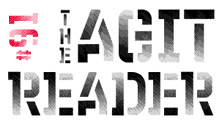
Interpreting the Masters Volume 1:
A Tribute to Daryl Hall and John Oates
Blue Note
In one of the more positive aftershocks of ’80s revivalism, Hall and Oates have become cool again. Signs of their resurgence can be found all over the pop culture landscape, from the internet video series, “Yacht Rock,” which simultaneously celebrated and skewered soft-rock bands, to the memorable use of the duo’s classic “You Make My Dreams” in the Joseph Gordon-Leavitt/Zooey Deschanel indie-thon 500 Days of Summer. Many children of the ’80s on the front-end of adulthood no longer consider musical descriptors like “smooth” and “polished” to be dirty words; for even more proof of this, look no further than the pleasantly unexpected success of long-time softies Phoenix. To borrow a phrase from fellow “Yacht Rockers” Huey Lewis and the News, it’s once again “hip to be square.”
But the band’s sudden spike in popularity has as much to do with borrowed nostalgia and hipster trends as it does with the fact that younger generations are just now being exposed to the band’s irresistably catchy combination of R&B soul and new wave swagger. The Bird and the Bee’s Interpreting the Masters Volume 1: A Tribute to Daryl Hall and John Oates supports this claim, serving as a reminder of the duo’s impeccable songcraft as well as their influence on many of today’s artists. So does this tribute record stand on its own, or would listeners be better served by going straight to the well?
While none of The Bird and the Bee’s interpretations are drastically different in terms of tempo or melody, the synthesized instrumentation allows a few of the songs to shine in new, unexpected ways. The coolly keyboard-charged rendition of “Private Eyes” reveals how much the chillwave sub-genre, particularly its golden boy Neon Indian, owes to Hall and Oates. “Maneater” here sounds even more detached than the original, adding extra weight to the narrator’s attack on the titular soul-crusher. One song, “She’s Gone,” even improves on the original. The slap-bass, punchy organ, and cheesy wah-wah of the Hall and Oates version always sounded a bit too pornographic to me for a track about losing the woman of your dreams forever. But here, the lovelorn narrator is surrounded by a melancholy electronic soundscape that better compliments the song’s devastating lyrics.
Eventually, the fickle arbiters of pop culture relevancy will tire of soft rock, Michael McDonald will go back to being “that guy who Warren G sampled,” and adult contemporary will again be filed next to Christian rock under genres-to-be-avoided-at-all-costs. But before that happens, Interpreting the Masters reminds us that Hall and Oates were terrific songwriters worthy of sincere appreciation and not just goofball icons of a bygone era.
David Holmes

The Monitor
XL
What do you make of a band from humble New Jersey that puts their name in the song titles so often? “Unabashed” is the word that comes to mind, unabashed rage, and the unabashed joy of the half-drunk defensive stance that’s inspired some of the best “fuck you’s” recorded in the modern era. (One of them, “Fear and Loathing in Mahweh, NJ,” opens Titus’ last album, The Airing of Grievances.)
Our 19th-century Civil War is present here as some kind of thread just barely holding the album together, but it seems more like an opportunity to mine one of the few historical eras more rife with American misery than our own. Rallying cries need something to stand against, and quoting William Lloyd Garrison (“I am in earnest. I will not equivocate, I will not excuse. I will not retreat a single inch, and I will be heard.”) will always make you feel righteous. So singer Patrick Stickles blows his way through 10 tracks of woe-begotten E-street bluster to let us know that Paul Westerberg may have calmed down, but somebody still loves you, Bob Stinson. “The enemy is everywhere,” he shouts on “Titus Andronicus Forever,” so “let’s get fucked,” he follows-up on “Theme from ‘Cheers’.”
Stickles’ pessimistic point-of-view about the world as it is makes it exceedingly difficult to pick the most exemplary lyric to demonstrate it. On “The Battle of Hampton Roads,” he writes, “Is there a girl in this town who hasn’t been raped? Is there a boy in this town who’s not exploding with hate? Is there a human alive looking themselves in the face without winking? Or saying what they mean without drinking?” And yet the band is determined to mine every last drop of pleasure out of their doomed circumstances. On “A More Perfect Union” they “rally around the flag” till the last bitter moment of feedback, and on “No Future Part Three” they actually turn “you’ll always be a loser” into a slam-dancing sing-along—as if the string quartet who famously played on as the Titanic went down had absolutely the right idea after all.
Matt Slaybaugh

Hardships & Head Trips
Catalyst Act
The short-lived popularity of rap-rock was nothing less than an exercise in missed opportunity. It would stand to reason that kids raised equally on hard rock and hip-hop would do something interesting by combining their two loves. Yet for every Rage Against the Machine, there seemed to be 20 Fred Durst–alikes. Recently, however, there’s been an unlikely return of rap-rock, but this time around instead of relying on the bombast of metal, there seems more an interest in the subtleties of indie rock. Eyedea & Abilities’ and Cage’s latest albums are the most high profile examples, but it goes way beyond them. Baltimore’s King Rhythm throws his hat into the ring with his album, Hardships & Head Trips.
At first blush, King Rhythm seems to have his work cut out for him. After all, combining rock with rap has generally provided more jeers than cheers. Add to that the King’s status as an “underground” rapper, which has its own pitfalls, and you have the potential for a huge pile of fail. So it’s with no small amount of relief that Hardships & Head Trips is one of those rare rock-infused hip-hop records that actually works.
The tone is set from the opening track, “No Magic/ Banging the Wall.” The instrumental section (“No Magic”) sounds like it could be a B-Side from Battles’ Mirrored album. It plays for two minutes before King Rhythm’s vocals make an appearance on the second section, “Banging the Wall.” As a continuation of the musical ideas of “No Magic,” he shows that he won’t fall into the trap of guitars equalling yelling and aggression. Instead, he takes a laidback, almost conversational tone, adding the occasional sing-song accent to sell the chorus. There’s not even the whiff of gimmick.
One of the best things about Hardships is that it’s a really thoughtfully arranged record. It isn’t stitched together from snatches of riffs and loops; it sounds like the work of a focused post-rock group. If you were to only hear the instrumentals, you’d probably never imagine that they were the backing tracks for a rapper. Yet King Rhythm sounds as natural on these songs as another MC would sound over a drum break. And instead of songs that only exist to dazzle with technical ability, King constructs tightly wound narratives that warrant repeated listens. Here’s hoping that King Rhythm stays on the job and helps to erase the memory of too many backwards baseball caps.
Dorian S. Ham

Animalore
Undertow
Via Audio’s sophomore effort, Animalore is pretty heavy on the kitsch (the lead single’s catchphrase is, quite literally, “I wanna make babies with you”), but it’s only occasionally silly. It’s an interesting dichotomy: the songs deal with the tribulations of highly serious matters like heartbreak, depression, lost love, and sexual frustration, by allegorizing them into seemingly harmless fantasies of cops and robbers, fairy tales, and (as the title hints) animals.
The two most obvious animal metaphors, aptly titled “Tigers” and “Lizard Song,” are incredibly divergent in terms of their parable. “Tigers” relates curved-lip CEOs (and I imagine big-shot record label executives) to, well, tigers stalking their prey with a sauntering gloat, coercing the serfdom into their less-than-wholesome desires. As frontwoman Jessica Martins puts it, “You can say whatever you feel as long as you know you will become a meal. So shake their paws, seal all the deals.” “Lizard Song” exchanges the destitute irrevocability of its counterpart for a bushy-tailed, young-minded lizard: “I feel different than I did before.” It’s a song about growing up, but not getting older. It explores the giddy shock of the realization of the wide open world, a time before cynicism or doubt wrapped its icy claws around our soul.
Obviously not all of Animalore’s songs are cloaked in that analogical coyness. In fact, some of the more highlight-worthy tracks are pretty deliberate in their elegance. “Wanted,” a majestic soul-sweeper, is devoid of the semi-frivolous disposition of the other tracks. Amidst a taut violin swoon and distant Middle-Earth drums, Martins chronicles a world as intangible as it is beautiful. “If you hold your breath,” she sings, “you never have to come up for air.” It’s not necessarily a somber song, but it’s definitely a change-up amidst the album’s reductive nature, and it manages to be pretty awe-inspiring at the same time.
Via Audio is a bit of a dinosaur in a lot of ways. With the ’90s now two decades behind us, “twee” as a genre has sort of passed us by. Sure we had a brief resurgence with the forever-callow The Boy Least Likely To, but they were dusted under the doormat as quickly as they emerged. It’s clear that Via Audio is a band hopelessly (and charmingly) attuned to the heroic lineages of Belle & Sebastian and the Cardigans, and honestly, their songs aren’t that far off from reaching a similar plateau of reverence. Animalore is certainly not the most original album released this year, or even this week, but it’s got a good heart, even if that heart was drawn by a lovesick fifth grader.
Luke Winkie
MP3: “Babies”
ALBUM REVIEWS
Bettie Serveert, Pharmacy of Love
Matt Pond PA, The Dark Leaves
Archie Bronson Outfit, Coconut
The Internal Tulips, Mislead Into a Field By a Deformed Dear
Eddy Current Suppression Ring, Rush to Relax
Love Is All, Two Thousand and Ten Injuries
Gorillaz, Plastic Beach
Happy Birthday, Happy Birthday
Golden Triangle, Double Jointer
Drive-By Truckers, The Big To-Do
Ted Leo and the Pharmacists, The Brutalist Bricks
JJ, jj nº 3
These New Puritans, Hidden
Black Rebel Motorcycle Club, Beat the Devil's Tattoo
